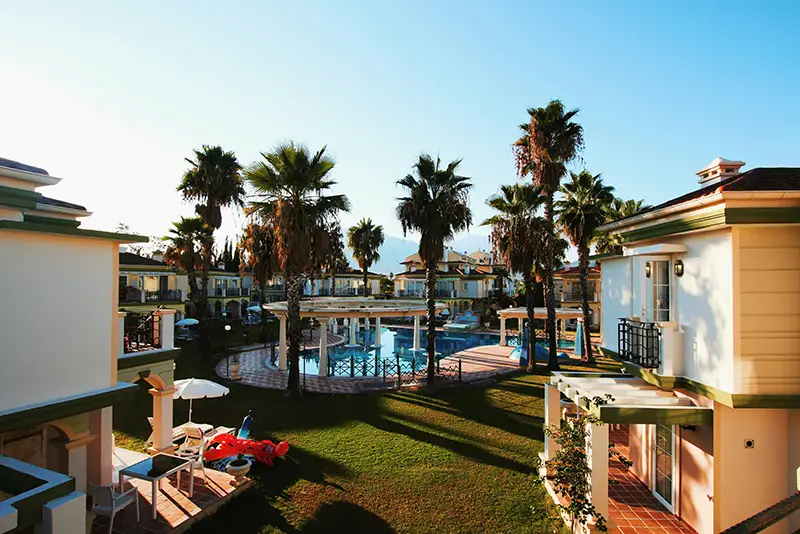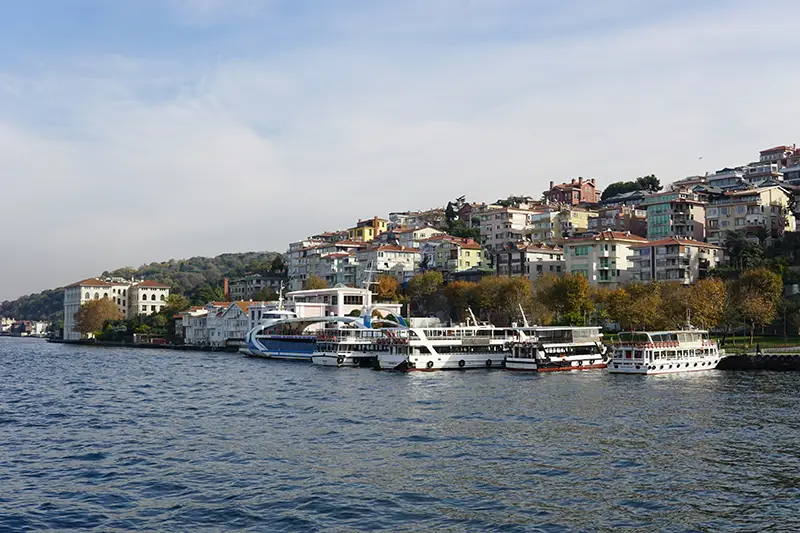Turkey attracts many people with its climate, culture, and hospitality, but when planning a move, it is important to objectively assess all the pros and cons of living in this country in order to make an informed choice.
Turkey’s location at the crossroads of Europe and Asia creates unique conditions for comfortable living and easy mobility. The country has access to four seas — the Black Sea, the Mediterranean, the Aegean, and the Marmara, making it attractive for both leisure and permanent residence. Major cities like Istanbul and Ankara function as key hubs for international flights and cargo transportation. The moderate Mediterranean climate with mild winters and hot summers is particularly appealing to those coming from colder regions.

Immigrating to Turkey is facilitated by state programs for foreigners. For example, buying real estate worth $75,000 allows one to obtain a residence permit. The country offers various types of residence permits, including family and student options.
Turkey’s millennia-old history, incorporating elements of Ottoman, Byzantine, and Arab cultures, creates a favorable environment for the adaptation of foreigners. Knowledge of the Turkish language becomes an additional advantage, especially in regions where fewer people speak English.
The economic component plays a key role. The relatively low cost of living, investment attractiveness, and business opportunities make the country promising for immigrants.
The cost is noticeably lower than in most European countries. For example, renting an apartment in Antalya costs around $300–500 per month, and in Istanbul, it ranges from $400–800 depending on the area. Food products are available at moderate prices: a kilogram of chicken costs around $2, a liter of milk costs $0.7, and a meal at a mid-range restaurant costs $5–8. The state supports affordable prices for utilities, making living here particularly advantageous.
Real estate in Turkey is a profitable investment for Russians. Resort cities like Alanya, Antalya, and Bodrum offer a wide range of housing options, from apartments to villas. The average cost of an apartment is $50,000–60,000. Real estate investments have become a popular way to preserve and increase capital, as well as an excellent basis for generating passive income from renting out property.
Work in Turkey for Russians covers areas such as tourism, IT, and teaching. Many foreigners start their own businesses — from cafes to boutiques. The state offers accessible programs for registering companies, making Turkey a favorable country for entrepreneurs. The average salary in major cities ranges from $500–800, but skilled professionals can earn significantly more.
 Family life in Turkey has special features that distinguish this country among other destinations for immigration. The hospitality of local residents, high level of education and healthcare, as well as orientation towards family values make Turkey attractive for families. It is important to consider cultural features that contribute to a quick adaptation to a new environment.
Family life in Turkey has special features that distinguish this country among other destinations for immigration. The hospitality of local residents, high level of education and healthcare, as well as orientation towards family values make Turkey attractive for families. It is important to consider cultural features that contribute to a quick adaptation to a new environment.
Educational opportunities in Turkey provide a wide range of options for children. Public schools are free, but education is conducted in Turkish. Private international institutions offer programs in English, German, and French, which is convenient for immigrants. The cost of education in international schools ranges from $4,000 to $12,000 per year. Higher education is also highly valued here. Bogazici and Middle East Technical Universities are included in global rankings.
Healthcare in Turkey is considered one of the best in the region. Modern hospitals equipped with advanced technology offer quality services. State clinics are accessible through insurance, while private clinics offer services at moderate prices. For example, a doctor’s consultation in a private clinic costs $20–50, and a complex surgery can be up to 70% cheaper than in Europe or the USA.
The local mentality is oriented towards family values, making life in Turkey comfortable for families with children. Residents often help new neighbors adapt by inviting them for tea or dinner.
Resort cities like Antalya, Alanya, and Fethiye offer a combination of modern infrastructure and a relaxed pace of life. These regions are popular among retirees and families due to the availability of housing and developed tourist infrastructure. The warm sea and over 300 sunny days a year make them ideal for year-round living. What other cities are worth considering?
Istanbul:
Ankara:
Izmir:
These cities offer a wide range of choices depending on personal preferences, whether it’s a dynamic life or a more peaceful environment. Each place has its unique features suitable for different categories of people.
Travelers in Turkey will find a vast array of destinations to explore. Let’s take a closer look.
Ancient Cities:
Natural Attractions:
Marine Activities:
Ski Resorts:
 The pros and cons of living in Turkey become evident when examining all aspects. The country offers a comfortable climate, affordable cost of living, quality healthcare, and education. It is important to consider cultural and bureaucratic peculiarities. A thoughtful approach to relocation will help make this step successful and well-considered.
The pros and cons of living in Turkey become evident when examining all aspects. The country offers a comfortable climate, affordable cost of living, quality healthcare, and education. It is important to consider cultural and bureaucratic peculiarities. A thoughtful approach to relocation will help make this step successful and well-considered.

Excuse me. No publications yet